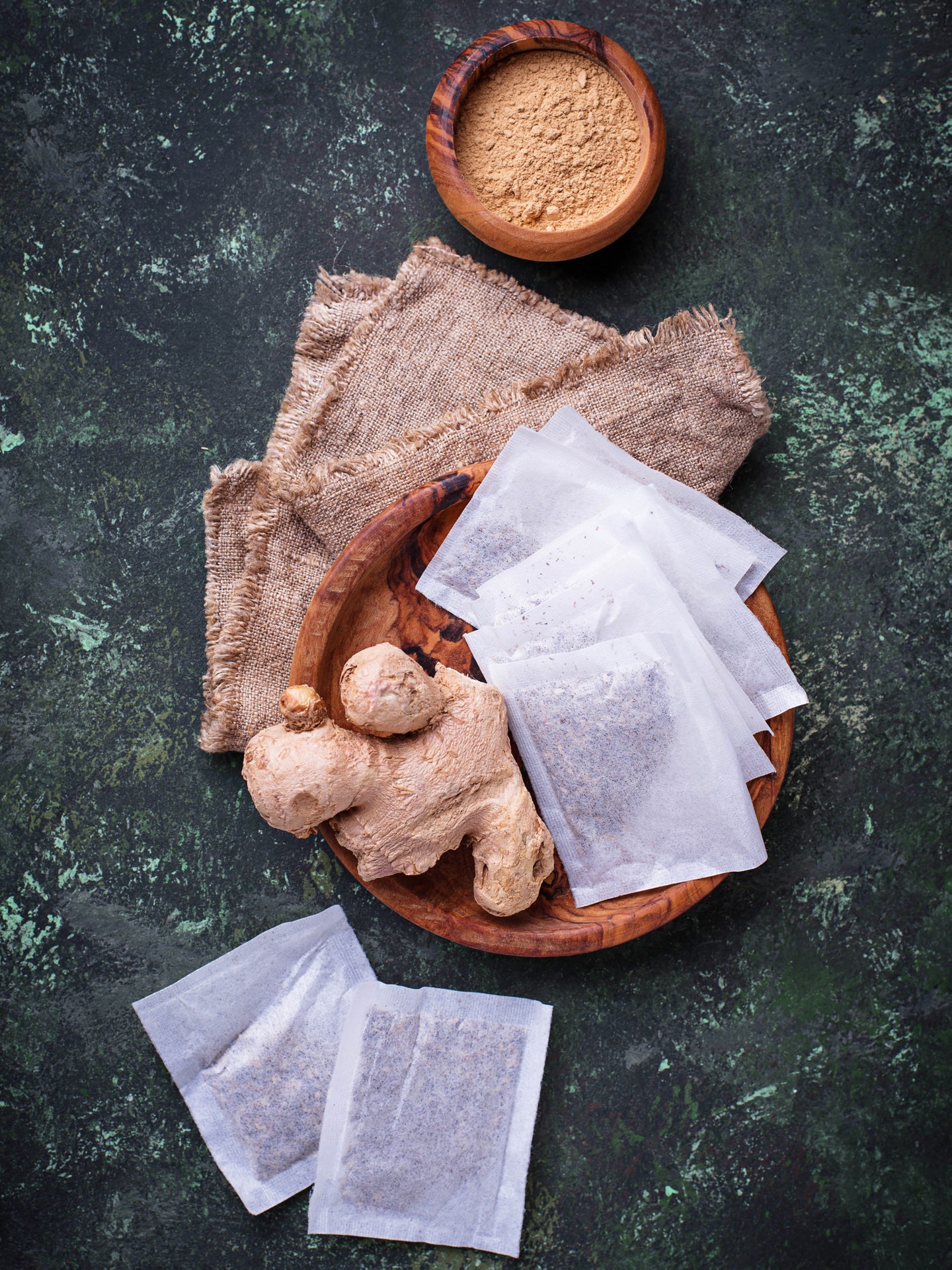How to Stop—And Prevent—Bloating
Soothe your stomach with these tips.
Published Aug 6, 2018 8:55 PM
We may earn revenue from the products available on this page and participate in affiliate programs.
There are few discomforts quite as annoying as the “water balloon inside your belly” feeling known as bloating. But luckily there are some tricks you can try to help limit the swelling. We enlisted a few experts—a heralded doctor who specializes in digestion and inflammation, a clean-eating expert, and a hormone specialist—to share their tips for beating bloat, both in the moment and before it happens.
But first—what causes bloating?
It turns out, as unhelpful as it seems, bloating that happens during the menstrual cycle is actually your body’s way of protecting you. Estrogen and progesterone sharply rise in preparation for a possible pregnancy (which is a normal monthly occurrence, even when you aren’t planning on getting pregnant), and in doing so, your body retains water by curtailing urine output.
“Many of us in evolutionary medicine believe this happens in order for us to have adequate fluid stores when the nausea of pregnancy kicks in,” says Steven R. Gundry, M.D., author of the best-selling book The Plant Paradox. “The nausea is actually protection of the newly developing embryo against potential plant toxins like lectins, which interfere with normal development.” If you’re not pregnant, though, bloating is just an annoyance.
Of course, you can also experience bloating for reasons totally unrelated to the menstrual cycle, like food and lifestyle choices. Part of the problem could be poor gut health and nutrient absorption, according to Whitney Tingle, cofounder of Sakara Life. “Food—even healing, cruciferous veggies—can make you bloat,” she says.“It can also be caused by fiber deficiency, chewing gum, carbonated drinks, inflammation, dehydration, and poor digestion.”
Another culprit? Stress. “If you’re stressed and you step on the scale, you seem to weigh five pounds more than you did the day before. That’s the effect of cortisol: It puffs you up due to its antidiuretic function, causing your body to retain sodium,” explains Alisa Vitti, functional nutrition and women’s hormone expert and author of Woman Code. “If you’re feeling chronically stressed, overwhelmed, stretched too thin, have low-grade fatigue all day, or a reliance on caffeine, then this is very likely the root cause for you.”
What can you do to stop and prevent bloating?
A lot, thankfully. From digestive enzymes to leafy greens to (oddly enough) jumping, the experts have some recommendations:
Magnesium
We’ve chatted before about how magical magnesium is, but if you haven’t tried it yet, here’s your reminder: Every single one of our experts cited it as a must for daily well-being, but it’s especially helpful for bloating. “Magnesium is a critical mineral for digestion and overall calming of the body,” says Tingle.
Gundry suggests increasing the amount of magnesium in your diet (in pill form, ideally) to about 400 to 500 mg—particularly at bedtime. “Magnesium not only is an excellent sleep aid, but it enhances bowel motility and improves mood, especially during the time when your mood may not be at its best,” says Gundry.
Chocolate
Vitti loves recommending high-quality chocolate as “hormone-balancing medicine”—as long as it’s at least 70 percent dark chocolate and made of organic raw cacao. “It’s fairly high in magnesium, with 176 milligrams in a 100-gram serving—that’s basically half of your daily recommended intake,” she says.
Liquids
The last thing that might sound helpful when you’re bloated is more liquids—but if you’re selective, they can be a saving grace. A classic is ginger tea, but room-temperature water is also beneficial. Vitti swears by her “Anti-Bloat-ini,” made with three beets, three carrots, four celery stalks, a half cup of spinach, half a bunch of cilantro, and one lemon. Drink up!
Probiotics
“When the microbiome—the bacteria that live in your gut—are off balance, your digestive system starts to react to certain foods, stops being able to absorb certain nutrients, and becomes inflamed,” Vitti explains, which can lead to bloating. A proper probiotic (one with digestive enzymes) is a great way to transform your overall well-being, but especially your gut; it helps properly break down foods so you can digest easier.
Leafy Greens
Tingle recommends aiming for six to eight cups of greens a day—which sounds like a lot, but between juices or smoothies and a salad at lunch or dinner, you’ll easily hit that number.“They will transform your microbiome—aka the six pounds of bacteria living in your gut,” she says. “And if your gut is thriving, you absorb your nutrients better, you feel lighter, your mood is better, you have more energy, and you even absorb your calories differently.”
Parsley and Celery
If the root cause of your bloat is menstrual-related, then natural diuretics are the way to go. Gundry suggests incorporating both celery and parsley into your diet—in fresh and pill form.
“Both parsley and celery have been shown in human trials to increase urine output, and parsley and celery seed capsules are easily found in health food stores and online,” says Gundry. “Using parsley in cooking and having celery seeds sprinkled on salads is a great way to get rid of water retention.”
Exercise
Working out can feel like the absolute last thing you’d like to do, but it can get your blood circulation flowing. “Jump on a mini trampoline,” says Vitti. “Exercise is a great way to beat stress and decrease levels of cortisol.” And mini trampoline workouts—you can find videos online if there isn’t a studio near you—are seriously no joke (although they are pretty much guaranteed to make you laugh).
See more stories like this: What Happens to Your Body When You Don’t Get Enough Sunlight If You Feel a Cold Coming On, Try These Next-Gen Vitamins We Gave Nutritionists $25 to Spend at Trader Joe’s—Here Is What’s in Their Carts
